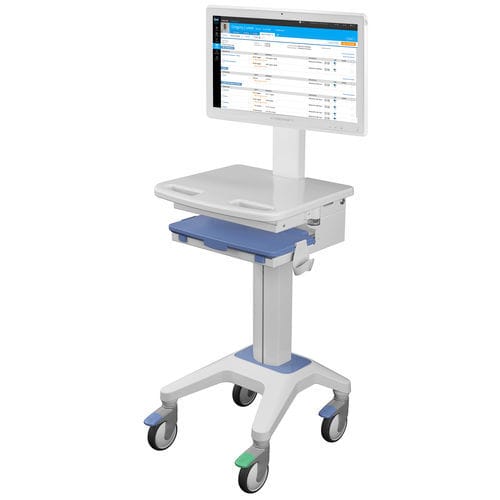
#Industry News
Why Specialty Healthcare Will Go Remote
Telehealth is Changing the Face of Healthcare
While the emergency protocols demanded by social distancing measures will disappear, many of the technical innovations fostered by the pandemic will remain. Telehealth and mobile healthcare facilitated by Medical Tablets and the Internet of Medical Things (IoMT) will be an integral part of specialty healthcare post-pandemic.
Telehealth Brings the Experts to You
Before the pandemic, 22% of physicians reported using telehealth services. That number increased to 80% in 2020. While in 2019, telehealth was primarily utilized in urgent care, in the wake of COVID-19, the number of virtual specialty care visits has far outpaced the number of virtual urgent care visits.
Enhanced Care in Rural Communities
Telehealth allows rural patients to consult with specialists they otherwise would have to travel a long way to see. Many rural areas have scant broadband access, as such bandwidth-heavy video chats are not feasible. Thankfully, doctors can use HIPPA compliant SMS texting applications to check in on patients without high-speed internet access.
Easier Access for patients with mobility issues
Patients with limited mobility can now check-in with their care provider without worrying about how they will transport themselves to the doctor’s office each time. A patient on bed rest can use their smartphone or tablet to video chat with their doctor on a webcam-enabled device.
Doctor to Doctor Consultations
Before the widespread adoption of telemedicine, doctors would have to rely on email and phone calls to consult with other specialists. A doctor can now consult multiple specialists around the world right from their Medical PC or Tablet during their appointments. The specialist can video chat with both the patient and the primary doctor and check the patient’s vitals using the connected Internet of Medical Things devices.
Internet of Medical Things and Chronic Care
What if a doctor needs to collect a patient’s vitals during a remote exam? Enter the Internet of Medical Things (IoMT). IoMT refers to an interconnected network of medical devices and digital sensors that collect and share data via the Internet. Patients with chronic conditions can use wearable sensors or handheld peripherals to scan various vital signs and wirelessly transmit them to a specialist miles away.
Though remote monitoring will not fully replace in-person visits, doctors will likely continue to rely on remote monitoring and telehealth for chronic care after the pandemic. In fact, according to a recent poll by Amwell, 93% of physicians have indicated that they are willing to use telehealth for chronic care management.
Mobile Computing and Wireless Connectivity Advancements
Although in-person visits are not going away any time soon, that does not mean every doctor’s appointment must occur at a doctor’s office or hospital. Rugged medical tablets allow healthcare professionals to see patients in the field. Combined with IoMT devices, a specialist can receive data on a patient’s vitals and treatment in real-time, visualize it on the tablet and share it via the cellular network with other specialists around the world for their input.
Remote Care Reduces Costs for Providers and Patients
Widespread adoption of telehealth in specialty care can significantly reduce operating costs across the industry. The reduced patient load in facilities frees up resources and allows them to be redirected to intensive procedures where they are needed most. Providers can then pass these savings on to their patients in the form of lower fees.
Final Thoughts
Though already poised to be a significant part of healthcare in the 21st century, the COVID-19 pandemic has dramatically accelerated the widespread adoption of telehealth and remote care. Specialty care, in particular, will be forever be transformed by the pandemic. If you’re interested in learning how you can join the future of connected healthcare, contact one of the experts at Cybernet Manufacturing today.








